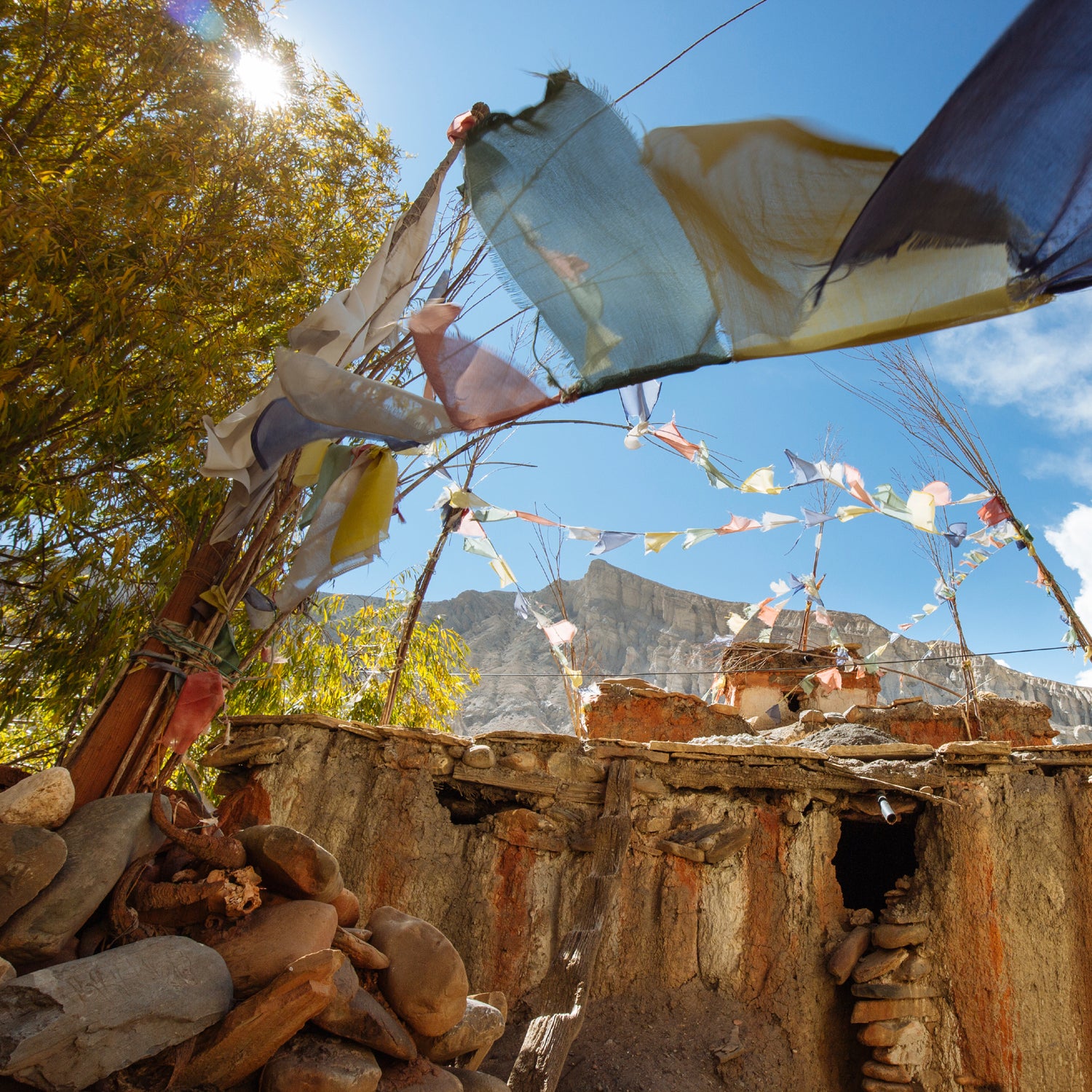Many world-curious writers evoke one of two emotions in readers: either a yearning for parts unknown or a gratitude for the comforts of the familiar. When reading Bob Shacochis, it’s harder to say.
($26, Grove Press) compiles 20 years of magazine writing by longtime journalist, novelist, and compulsive adventurer Bob Shacochis. He charges across the globe, from Mount Ararat in Turkey to Kamchatka, Russia, using experiences and physical terrain as tools for self-discovery and anthropological exploration. The resulting 13 essays included in the book are poignant, observant, and swashbuckling all at once.��
The collection opens with the titular novella “Kingdoms in the Air,” a 140-page dispatch that sees Shacochis traveling to Nepal in 2001 with Thomas Laird, a photographer friend of his who lived there a decade earlier. They’re traveling through Upper Mustang, an area of the Himalayas formerly sealed off from foreigners. What unfolds is a calamitous haul on horseback, during which Shacochis mines the turbulent political landscape, challenging geography, and his friend’s inner turmoil as Laird observes how the country has changed in his ten-year absence.��
It’s Shacochis at his no-bullshit best, and it sets the tone for the subsequent essays, compiled and republished from their original forms in magazines such as Men’s Journal, �Ჹ������’s, and, yes, �����ԹϺ���.��
Shacochis, a National Book Award winner and Pulitzer Prize finalist, favors run-ons and fragments; he jumps from one scene to the next without coaxing us through a transition; he rarely uses dialogue. His writing is pared down and to the point, Hemingway-blunt, and yet it reverberates with meaning. “All human endeavor here is overshadowed by vast wilderness, the horseshoe of severe mountains above the cultivated plain that corral Upper Mustang…” he writes. “Sometimes wolves prowl the fringe of the hamlets; in the higher pastures, sometimes villagers will kill a snow leopard for culling their herds. This is the home of the mythical yeti, the abominable snowman, and a bloodthirsty pantheon of local spirits; when night falls superstitious villagers bolt their doors.”
These essays are about more than just place, and Shacochis has a knack for distilling expansive, complicated situations down to their most important parts and plucking details that transport. Kamchatka, “perhaps Russia’s most famous nowhere,” he introduces as a place to which children pretend-banish each other as penalty for losing a game. The rani (queen) of Kathmandu is “pale-faced and fine-boned and thin, elegant in her traditional gray bukkhoo and apron, her doe eyes beautiful but heavyhearted.” The decline of Mozambique’s Gorongosa National Park is summarized in a sentence: “… its infrastructure blasted to rubble, its bountiful population of animals slaughtered, eaten, reduced to gnawed bones and wistful memory.”
In a way, the essays in Kingdoms in the Air are templates for how to live. Shacochis is not advocating for reckless travel as a means for indulging restlessness. Rather, he’s showing by example that a big life can be lived in many ways: by learning about injustice and beauty, by cultivating openness and curiosity instead of fear or hesitancy, by seeking strange lands, and by observing, empathizing, and questioning.
The final essay, “Leave,” is an appeal to Shacochis’ Florida State University graduate students to go out and consume the world. He writes, “Let the road end; stop at a crossroads where the light is surreal, nothing familiar, the air smells like a nameless spice, and the vibes are mesmerizing or just plain alien and stay, long enough to truly be there.”
In Kingdoms, Shacochis beckons us along on his quest for these crossroads. More than a diary of days and locations, these essays are time stamps of an explorer’s long-spanning literary career, and they are not to be missed.��


